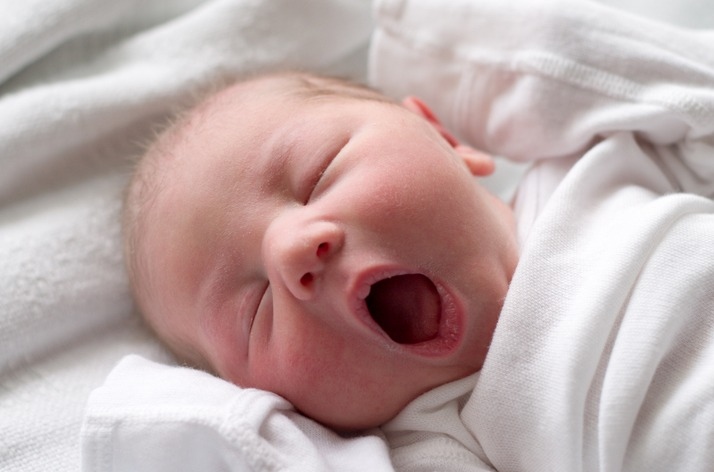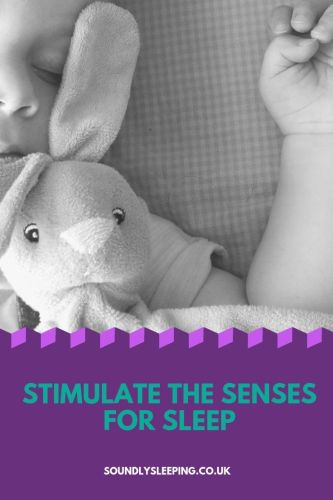Stimulate Those Senses For Sleep!
Posted on

A new baby's knowledge and understanding of their environment or world is developed through their senses. They use their sense of sight (although limited when they’re new-born) smell, hearing taste and touch to make attachments, associations and build an understanding of their parents/carers, their environment and activities throughout their day. They may associate the smells and sounds they encounter during the day with being awake i.e. when they’re in the living room with you, during the day as their senses become more and more stimulated by those same stimuli on a consistent basis they attach those sensations to certain situations and build up a schema or pattern of thought.
In the prior example perhaps your baby might associate the sound of the clock in your living room. The smell of the pot pourri on the sideboard, your baby may play with a squeezie toy when awake and in the living room. This group of sensations will over time become a collection of cues or associations to your baby's senses that signify "awake time” Over the weeks of your baby growing and developing she will remember those same cues and will know and understand what happens when she’s awake and ready to play.
 You can use the same principles described above to create a collection of cues when you want to encourage sleep so that your baby can understand what it means to be sleepy and begin the process of going to sleep. Stimulate the senses with associations that are relaxing to the baby and this will help her understand, that she is tired or getting tired and its time to go to sleep. By introducing these cues or associations from as early as possible your baby will quickly get an understanding of what happens when it’s time to sleep.
You can use the same principles described above to create a collection of cues when you want to encourage sleep so that your baby can understand what it means to be sleepy and begin the process of going to sleep. Stimulate the senses with associations that are relaxing to the baby and this will help her understand, that she is tired or getting tired and its time to go to sleep. By introducing these cues or associations from as early as possible your baby will quickly get an understanding of what happens when it’s time to sleep.
During those first few weeks after giving birth, when you and your baby have been bonding and getting to know each other you more than likely will have become your baby's only sleep association by introducing positive cues such as lower lighting, gentle soothing music, soft cotton bedclothes, a soft toy perhaps, at times when your baby is getting ready to sleep or feeling sleepy, you can teach your baby using these stimuli to understand feeling tired and that its time to fall asleep. As she gets older and develops you can slowly, gradually withdraw your involvement over a period of time So that your baby is gradually able to learn to self soothe and fall asleep independently.
Being your baby's only sleep association in the first few months is a perfectly normal and natural phenomenon. And I encourage all mothers to use those first few weeks after giving birth as an opportunity for you to bond and get to know each other. Then when you are both ready you can use the cues you've introduced that play to your baby’s sense of sight, sound, smell and touch, to maintain continuity at the times your baby is going off to sleep.
Using sleepy cues can help as you slowly withdraw your involvement (but not your physical presence) in helping them go off to sleep. I believe that in helping your baby to be able to self-settle. Should they briefly awaken during the night they will be able to go back to sleep without their parents need to assist them. I'm not at all suggesting that brief awakenings are the only reason your baby may be experiencing sleep difficulties but teaching your baby how to fall asleep without your help can be instrumental in helping a baby to sleep through the night.
Here at Soundly Sleeping it’s not about forcing a baby to sleep through the night (its completely impossible to do anyways) it’s about gently teaching habits and techniques that have baby feeling secure and ready to sleep through at an age an stage that they are ready too.

